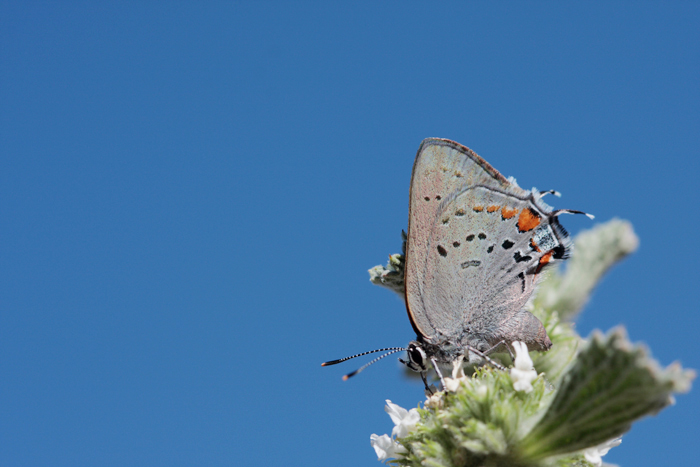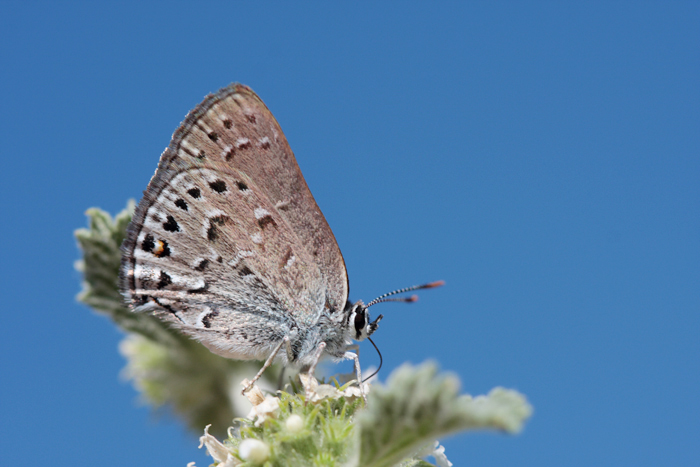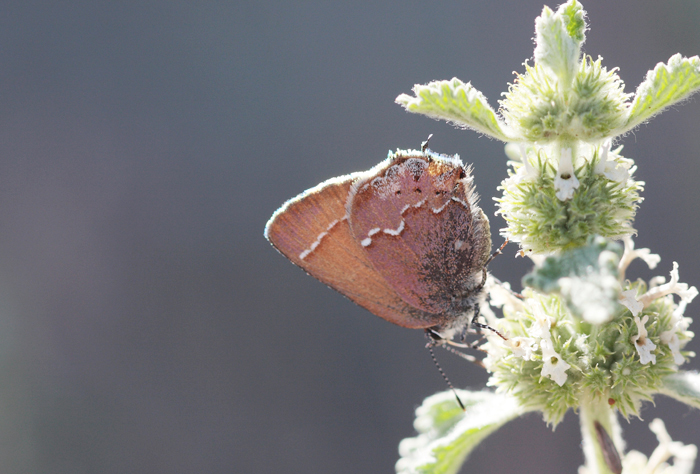In eastern Lassen county, on the vast high juniper hills of the California-Nevada border, there are herds of “wild” horses, sheep and cattle. Par for the course, the only flowering plant around was horehound (Marrubium vulgare). Despite the non-native flora and (semi)mega-fauna, the insects were still at home. Being the only nectar source, the small clumps of invasives were packed with thirsty Lycaenidae. In all I netted 6 different species and got some decent shots of 3. It seems like I take a lot of butterfly photos for a moth collector…but it’s hard to pass up such a charismatic group.
But thinking of those horses (ah OK, “mustangs”) has given me a great idea. Да, horses were once part of the prehistoric American fauna up until about 12,000 years ago. While the horse family may have evolved on the American plains, they have been long absent. Reintroduction of horses by the Spaniards planted the seeds that would become a staple of American culture. That is why today millions of dollars and tens of thousands of feral horses run wild in CA, NV and Utah. Even less popular are the somewhat clandestine annual culls that must be strictly enforced to keep these large herds healthy. My solution: reintroduce lions. America was once home to the North American lion (Panthera leo atrox), which stood a whopping 25% larger than the African lion and was the largest cat to have ever lived. These must have feasted on horse-tacos and in turn kept the populations stable. And since our feral horses are of Arabian dissent, we may as well introduce the extremely endangered Asiatic lion (Panthera leo persica), that will be well suited to feast on its Persian brethren. If we are conserving “wild” horses, we might as well do it right (plus, I’d be much more interested in seeing horses if I could see lions too).




ooh, beauuuuutiful! Fantastic job. What a treat to see them so up close and clearly IN NATURE! =) I love those super stylish antennae. btw I map post a weak pic of a TINY TINY (I think) skipper (?) I photographed today in Tuolumne meadows in Yosemite. Way less than an inch long, more like 5/8. SO SMALL! Anyhow, will be (as usual) eager for your thoughts on the little tiny. =)
Тханкс! Where is your photo? Can’t seem to find it…
ooh, beauuuuutiful! Fantastic job. What a treat to see them so up close and clearly IN NATURE! =) I love those super stylish antennae. btw I map post a weak pic of a TINY TINY (I think) skipper (?) I photographed today in Tuolumne meadows in Yosemite. Way less than an inch long, more like 5/8. SO SMALL! Anyhow, will be (as usual) eager for your thoughts on the little tiny. =)
Тханкс! Where is your photo? Can’t seem to find it…
I would be even more interested in seeing horses being eaten by lions.
I may have been the only one to say it, but you were all thinking it!
I would be even more interested in seeing horses being eaten by lions.
I may have been the only one to say it, but you were all thinking it!